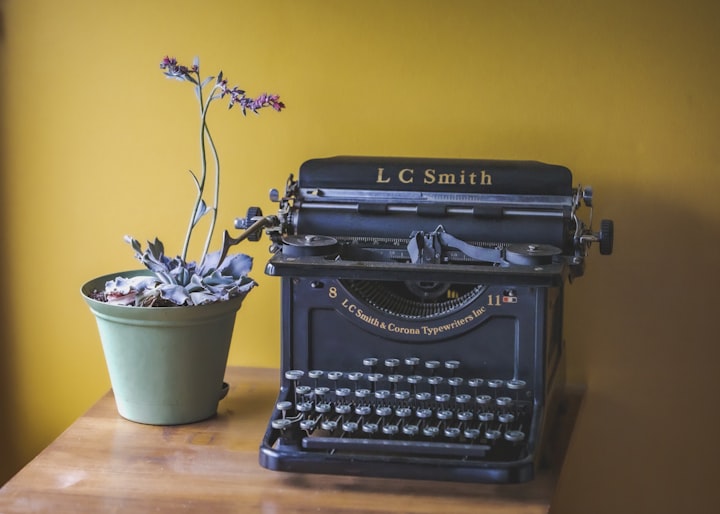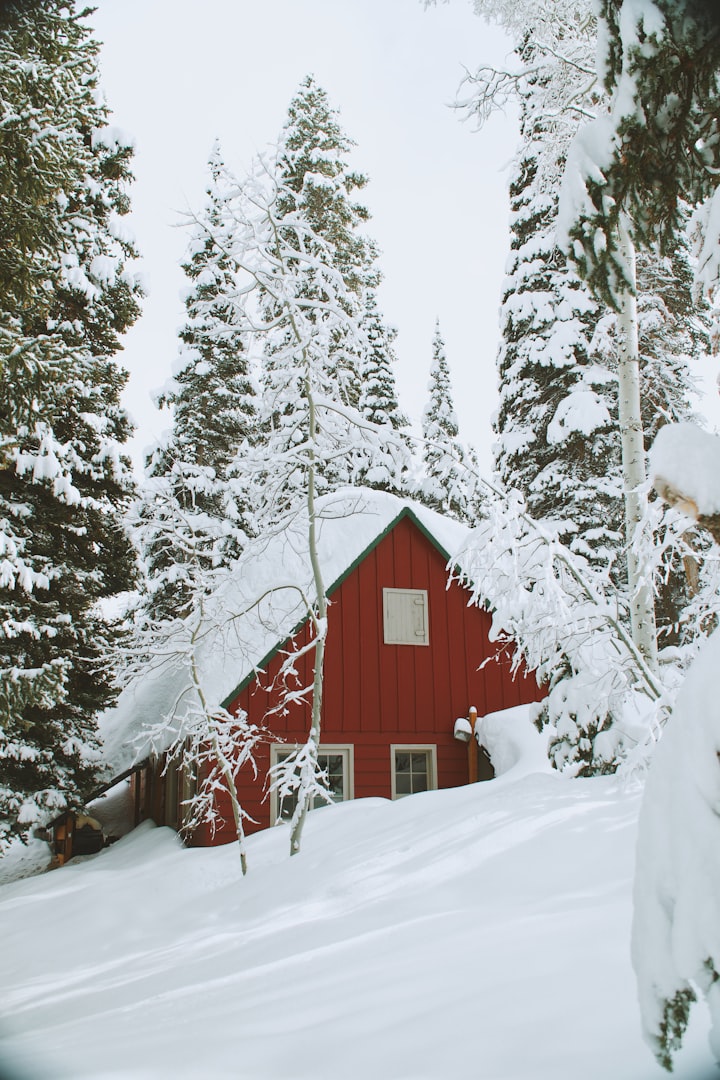How To Be the Amazing Poet You Always Wanted to Be and Know Down Deep You Can Be
Thoughts and tips on how to be a poet

Let you in on a secret. I didn’t think I’d ever consider myself a writer of poetry, much less a poet. And to let my guard down. even more, I don’t have it all figured out. Truth is, I won’t ever figure it all out even if I live to see 100. Neither will you, and that’s OK.
Poetry is a way of living, not just writing.
Poetry, like creativity and being a writer, is a lifestyle. It’s a series of daily — no, moment to moment — choices. Some of them become part of your autopilot, and some of these choices take effort.
But it’s worth it, I promise.
So, if you want to learn how to be a poet, how to see the world as a writer of poetry, keep reading, and let’s explore this a bit more.
Poetry is a journey, you are never just a poet, but a poet in motion.
At the end of the day, it really comes down to some key elements that you do, then do again, and keep repeating. Poetry is a process, a journey, and a lifestyle as much as a genre of writing. Here’s where you start:
- Read
- Write
- Reflect
- Apply what you learn
- Repeat
Too often we associate poetry with some hazy out of reach thing. But that is the farthest thing from the truth. Poetry is a means of writing that photographs moments of our life, our thoughts, our feelings, our connections (and disconnections) in these powerful frames of language that aren’t quite like other means of expression.
Poetry ought to be blue jeans plain, sometimes a little rough around the edges and always down to earth. So should the writers of these poetic words. Don’t let misconceptions of what poetry is and isn’t limit your own openness to the form.
If you want to write poetry, write poetry. It’s that simple.
“But, but buuuuut…” I hear you saying. “Just how the hell do you do that?”
You do it by writing about the ways you see the world, the ways you feel the world, the ways you interact and don’t interact. You write about those little connections (and your disconnections). Simply put, you have to write, and some ( a lot) of it won’t be pretty, but you just keep writing. You keep learning.
If you want to write poetry, embrace vulnerability.
Your next poem is buried in your everyday life, learn how to spot it.
The world is overflowing with inspiration. But, to get to a place where you can take true stock of all this inspiration, you have to be paying attention. You have to be grounded. You have to be grounded in the present, ready, watching, sometimes waiting, but oftentimes just trying to keep up.
Some writers recommend you carry journals, but I say just use your phone. That’s my style anyway. And when I see something, hear something, or a train of thoughts pops through the mind, I pull out my phone and pop open my notes and jot it down.
What you don’t want to do is worry about just how pretty what you’re writing is, or how finished it is, or how ready to publish it is. This isn’t about that. This is about observation, about capturing moments and doing so in a way that makes sense to you.
This is how you begin to collect your moments and really see and interact with the world as a poet. This is where the magic happens.
Your first draft ain't going to be pretty, but that's what you want.
At the end of the day, or whenever you sit down to write, pop open your notes file and read through. See what stands out. If you’re like me, one thing will lead to another, and after a long train of thought and a memory or two that would have been lost otherwise, you find yourself scribbling away at break-neck speed.
That’s when you begin to shape your notes, thoughts, memories and more into something new. That’s when the process of writing bad drafts, slightly less bad draft, crap drafts, and hey-this-isn’t-bad drafts starts to happen. Great writing is about growth, and progress over perfection.
This is the beginning of something that just might be great. But, to get there, it has to be edited and worked over a few more times.
Editing is one of the best magic tricks going, it turns ugly first (second and third) drafts into something that an audience can relate to and even connect with.
I firmly believe that great writing happens during revision and editing. Sometimes lightning strikes and a piece is sent to us mostly or even wholly intact. Hallelujah, but don’t rely on that, it doesn't always happen and a far better strategy is simply to show up and show up often.
So, in the meantime, we have to edit our work into the best version it can be and send it out to the world. This means working at the piece, putting it down, walking away, forgetting about it a bit, coming back to it, reading it with fresh eyes, editing a bit more. And, only after we’ve worked through the red lines of our editing (or whatever your process), then it’s ready.
There's a steep cost to becoming a great poet.
Learning to be a poet isn’t easy. It comes at a steep cost, but it’s often a cost you’ll happily pay in the end. It costs time, energy, faith in the face of every obstacle, and all the lying voices in your head telling you it isn’t worth it, that you are just a fake, that your writing is shit, that you don’t have what it takes.
Shake that shit off. You are stronger, tougher, bigger, better, and bolder than all that.
Writing of any type isn’t easy work, but it’s the kind of work that builds legacies and can help you grow a life you can be proud of. So, in the end, all the blood, sweat, and tears that go into your work, the days that are hard as hell, that you feel like throwing your damned computer through the window? Totally worth it.
So, how to be a poet? First one step, then the next. First you scribble something down that might be absolutely horrible. A barely living piece of writing. You might hate it and cringe at it, but, by god, you wrote that. You brought something into being from the force of your will, and the force of your imagination. Now, to really begin being a poet, do it again. And after that? Do it again.
Becoming a poet means writing tirelessly, bravely, and growing and working at it daily.
But that isn’t too scary now, is it? You are what you set out to be, and only you can declare yourself what you intend to be here: A poet. One ugly but slightly better poem after another. One step followed by the next. One scribble chasing down the next.
Poetry happens in the moments tucked between the writings as much and more than the writing moments themselves, and poetry grows from the editing. Don’t forget that either. Poetry is a lifestyle, go live it.
About the Creator
Gregory D. Welch
Kentucky poet & scribbler. Inspiring creatives to live a creative lifestyle. Creating with courage, passion, & purpose-fueled growth. Progress over perfection.






Comments
There are no comments for this story
Be the first to respond and start the conversation.